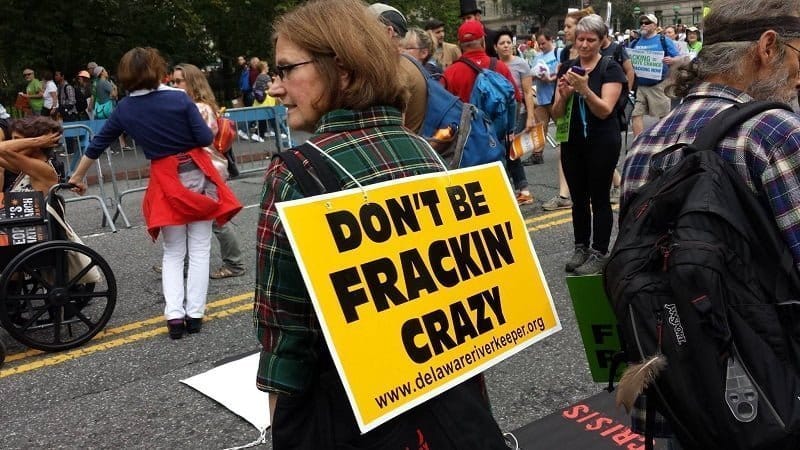The Delaware River Basin Commission (DRBC) failed to uphold its commitment to protect the basin’s water resources last month when it adopted regulatory amendments that fall short of a complete ban on fracking wastewater imports and the export of water for fracking from the Delaware River Watershed, environmental critics are saying.
In February 2021, the DRBC banned fracking within the basin. The adoption of these new amendments seemingly loosens what was considered a complete fracking ban and has drawn serious concerns.
“The future of the Delaware River Watershed is in grave jeopardy now that DRBC has opened the Watershed’s doors to fracking wastewater,” said Tracy Carluccio, Deputy Director, Delaware Riverkeeper Network.
Carluccio and the Delaware Riverkeeper Network are part of the Delaware River Frack Ban Coalition, which also includes Berks Gas Truth, Catskill Mountainkeeper, Clean Water Action, Damascus Citizens for Sustainability, Environment New Jersey, Food & Water Watch, League of Women Voters of Delaware, Natural Resources Defense Council, and New Jersey Sierra Club. Collectively, the organizations represent several hundred thousand members who are devoted to the Delaware River Watershed.
Fracking wastewater contains salts, oil and grease, metals, radioactive material, and manmade fracking chemicals, according to Becky Hammer of NRDC.
“These pollutants can be dangerous if they’re released into the environment or if people are exposed to them. They can be toxic to humans and aquatic life, radioactive, or corrosive,” wrote Hammer.
A 2021 report “Fracking with Forever Chemicals” published by the Physicians for Social Responsibility, exposes that PFAS have been used extensively in drilling and fracking gas and oil wells and that the public is unaware of this pathway of pollution.
“This means that the PFAS compounds used in fracking fluids can carry through to wastewater that would be transferred to the Delaware River Basin for disposal,” wrote Sahana Rao of the Natural Resources Defense Council and Delaware River Frack Ban Coalition member.
“We have been calling for a full and total ban on fracking activities including water withdrawals and frack waste imports,” said Eric Benson of Clean Water Action. “Unfortunately the DRBC did not deliver, so instead of finding closure after more than a dozen years of campaigning, we must renew our commitment to keep fighting,” he said.
While statements about the requirement to contain pollutants to prevent spills of wastewater were included in the final rule, it was already illegal to discharge pollution in all of the Watershed states.
“For over a decade the communities of the Delaware River valley have known they were protected from the direct ravages of fracking, and been proud in the knowledge that we were not helping to perpetuate the harms of this industry on other communities or future generations,” stated Maya van Rossum, the Delaware Riverkeeper. “That peace of mind, on both fronts, has now been taken by the Delaware River Basin Commission and its decision to allow our communities to become host to toxic frack wastewater and the source of water that will allow the industry to grow in its footprint and harm.”
While the DRBC has stopped short in protecting people and the environment from the ravages of fracking waste, the Delaware River Frack Ban Coalition and its watershed community will continue its commitment to protect the Watershed.
Ex-officio members of the Delaware River Basin Commission are the governors of the four basin states, John Carney, Delaware, Philip D. Murphy, New Jersey, Kathy Hochul, New York and Governor Tom Wolf, Pennsylvania, along with the Commander of the U.S. Army Corps of Engineers North Atlantic Division, Brig. Gen. Thomas J. Tickner, who serves as the federal representative.






